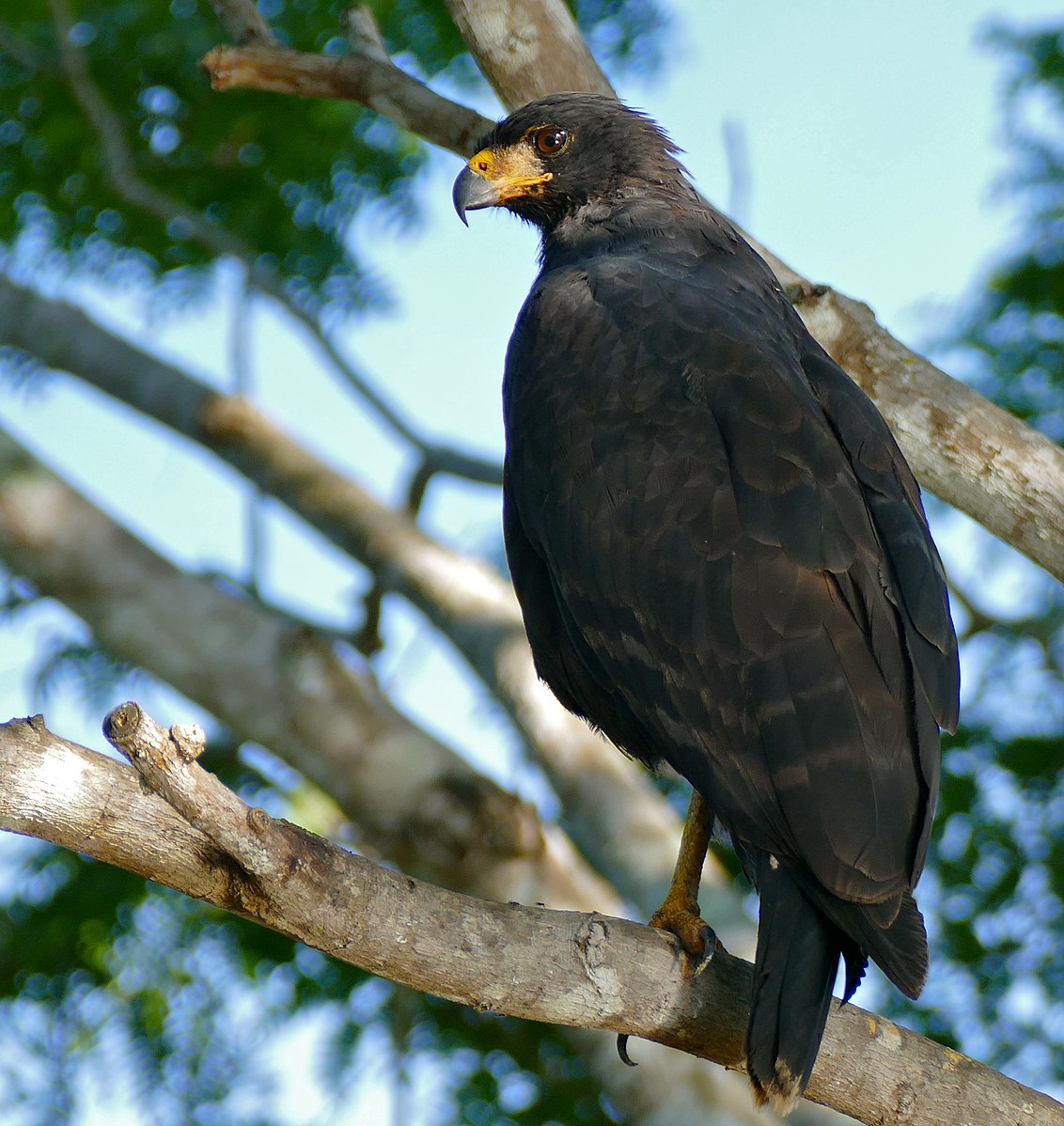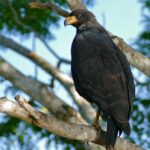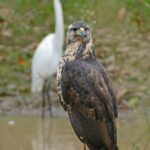Great Black Hawks are primarily diurnal birds, meaning they are most active during the day. While they have excellent vision during the day, their ability to see at night is limited compared to nocturnal birds like owls.
The Eyes of the Great Black Hawk
The eyes of the Great Black Hawk are adapted for daylight vision, with a high density of cones that provide good visual acuity and color vision. However, they have fewer rods, which are responsible for low-light vision, compared to nocturnal birds.
| Eye Adaptation | Great Black Hawk | Nocturnal Birds (e.g., Owls) |
|---|---|---|
| Cones | High Density | Lower Density |
| Rods | Lower Density | Higher Density |
| Low-light Vision | Limited | Excellent |
This means that while Great Black Hawks may be able to see better in low light conditions than some other diurnal raptors, they are not truly nocturnal and do not have the same level of adaptations for nighttime vision as owls and other nocturnal birds.
Hunting Behavior of the Great Black Hawk
 Image source: Great Black Hawk by Bernard DUPONT
Image source: Great Black Hawk by Bernard DUPONT
Great Black Hawks primarily hunt during the day, using their excellent daytime vision to locate prey from a perch or while soaring overhead. They feed on a variety of small animals, including fish, frogs, lizards, snakes, and small mammals.
While they may be active at dusk and occasionally at night, they do not have the same level of nocturnal adaptations as owls or other nocturnal birds. Their hunting behavior is primarily focused on daytime activities.
Comparison to Nocturnal Hawks
A study comparing the eye sockets of 28 raptor species found that the letter-winged kite, the world’s only nocturnal hawk, had larger eye sockets and smaller optic foramen diameters than other hawks, suggesting that it may have adapted to see better in low light conditions.
However, the Great Black Hawk was not included in this study, and there is no evidence to suggest that it has similar adaptations for nighttime vision. The Great Black Hawk is primarily a diurnal bird, and its eyes are not as well-suited for low-light conditions as those of truly nocturnal birds.
Conclusion
In summary, while Great Black Hawks may have better low-light vision than some other diurnal raptors, they are not truly nocturnal and primarily hunt during the day. Their eyes are adapted for daylight vision, with a high density of cones that provide good visual acuity and color vision, but they lack the same level of adaptations for nighttime vision as owls and other nocturnal birds.
Reference:
– Why do hawks avoid to fly at night?
– Common Black Hawk
– Great Black Hawk
– The world’s only nocturnal hawk may not see well in the dark


